Discover This Week in Space (Audio)
This Week in Space (Audio)

This Week in Space (Audio)
Author: TWiT
Subscribed: 530Played: 15,806Subscribe
Share
© This work is licensed under a Creative Commons License - Attribution-NonCommercial-NoDerivatives 4.0 International - http://creativecommons.org/licenses/by-nc-nd/4.0/
Description
The new space age is upon us, and This Week in Space leaves no topic untouched. Every Friday, join Editor-in-Chief of Ad Astra magazine, Rod Pyle and Managing Editor of Space.com, Tariq Malik as they explore everything related to the cosmos. You can join Club TWiT for $10 per month and get ad-free audio and video feeds for all our shows plus everything else the club offers...or get just this podcast ad-free for $5 per month.
New episodes posted every Friday.
New episodes posted every Friday.
191 Episodes
Reverse
Were you inspired by "Star Trek" (or one of its innumerable spinoffs) as a young person? We know we were, so it was a pleasure to invite Glen Swanson, author of the new Star Trek history book "Inspired Enterprise" onto the show. We've all heard lore about the original series, but Swanson, who was previously the Chief Historian at the Johnson Space Center, used his prodigious skills to perform a deep dive into the topic. From Gene Roddenberry's original inspiration to working with Caltech, the RAND Corporation, and NASA; and on to the design of the good ship Enterprise itself (and the very popular AMT models that followed), this book provides everything you need to know to be a certified Trekker.
Headlines:
Comet 3I Atlas confirmed as a comet, not a spacecraft & NASA releases new images and details of the comet
SpaceX's Starship Version 3 booster suffers damage during test
Uranus reaches yearly opposition—best viewing opportunity
Main Topic: The Real Inspirations Behind Star Trek
Glenn Swanson shares career highlights as a NASA historian and magazine founder
How Gene Roddenberry's background and influences shaped Star Trek
NASA's direct involvement and technical guidance for Star Trek's creators
The significant role of the aerospace industry, Rand Corporation, and real-world science in Star Trek's development
The story behind NASA and the Smithsonian Enterprise shooting model connections
AMT's plastic model kits fueled fan obsession and supported the show's visuals
Influences from movies like Robinson Crusoe on Mars and Forbidden Planet
Space Station K7 design's origins traced to NASA and Douglas Aircraft concepts
Star Trek's impact on inspiring real-life astronauts and the space community
Glenn Swanson's book, "Inspired Enterprise," and how you can get a signed copy
Hosts: Rod Pyle and Tariq Malik
Guest: Glen Swanson
Download or subscribe to This Week in Space at https://twit.tv/shows/this-week-in-space.
Join Club TWiT for Ad-Free Podcasts!
Support what you love and get ad-free shows, a members-only Discord, and behind-the-scenes access. Join today: https://twit.tv/clubtwit
Snow on the moon? Yes, though not recently... but maybe billions of years ago. Recent discoveries indicate that the early moon, orbiting just 20,000 miles above our planet at the time, may have shared a dynamic magnetic field with that of the Earth, resulting in the moon having an early atmosphere about twice as dense as the Martian atmosphere is today! This has wide implications for planetary science, but perhaps our favorite is that it may have snowed both carbon dioxide and water ice on the moon back in the day. We're also talking about the amazing launch and recovery of New Glenn, the plight of the Chinese taikonauts aboard the Tiangong space station, and a recent SpaceX memo about—no surprises here—a delay to their lunar landing program for Artemis III. Join us!
Headlines:
China's Shenzhou Astronauts Still Dealing with Stricken Spacecraft
Blue Origin's New Glenn Rocket Launches and Lands, Sends Probes Toward Mars
Comet C/2025 K1 Atlas Breaks Up After Solar Flyby
SpaceX Artemis Moon Landing Delayed to 2028
Main Topic: Moon Volatiles and Lunar Science
The Moon's Formation and the Giant Impact Hypothesis
Intertwined Magnetic Fields on the Early Moon and Earth
Transmission of Earth Atmosphere and Volatiles to Lunar Surface
Lunar Outgassing, Volcanism, and Creation of an Ancient Lunar Atmosphere
Permanently Shadowed Regions as Time Capsules of Early Moon and Earth
Scientific Importance of NASA's VIPER Rover for Analyzing Polar Ices and Volatiles
Commercial and Scientific Value of Moon's Minerals and Resources
Long-Term Preservation of Lunar Samples for Future Research
Early Moon Weather: Volatile Snow, Atmosphere Collapse, and What It Means for Lunar Resources
Educational Outreach through Virtual Space Science Experiences
Hosts: Rod Pyle and Tariq Malik
Guest: Dr. Jim Green
Download or subscribe to This Week in Space at https://twit.tv/shows/this-week-in-space.
Join Club TWiT for Ad-Free Podcasts!
Support what you love and get ad-free shows, a members-only Discord, and behind-the-scenes access. Join today: https://twit.tv/clubtwit
As you may or may not know, NASA's Goddard Space Flight Center is in the administration's crosshairs. With cuts to their budget and staffing beginning under Elon Musk's DOGE, it has taken a different form with the government shutdown. Employees furloughed or retired from critical programs, laboratories shuttered, and entire facilities gutted--all without the approval of Congress. By the time the shutdown is over, NASA's primary research center--and the one most responsible for what many are now calling "the C-word," climate science--will be a shell of its former self. Josh Dinner, who recently completed a months-long investigative report, joins us. Also: Jared Isaacman is back in the running as NASA chief, the 25th anniversary of the ISS, and China now working with the US on orbital dangers.
Headlines:
Trump Renominates Jared Isaacman as NASA Chief, Sparking Political Drama
25 Years of Continuous Astronaut Presence on the International Space Station
China Initiates Rare Satellite Collision Avoidance With NASA
Apollo-Era Radio Telescope That Spied on Soviet Satellites Up for Sale
Mars ESCAPADE Missions Twin Probes Prepare for Launch on New Glenn Rocket
Main Topic: NASA's Goddard Space Flight Center Crisis
Goddard Hit by Accelerated Building Closures and Funding Cuts
NASA Employees and Lawmakers Accuse Agency Leadership of Breaking the Law
Climate Science and Political Motives at the Core of Goddard's Struggles
Union Power Stripped After NASA's Reclassification as National Security Agency
High-Profile Missions Like Hubble, the Nancy Roman Space Telescope, and LISA Facing Uncertainty
Loss of Talent and Institutional Knowledge Threatens Future Space Projects
Congress and the Public Urged to Support, But Outlook Remains Grim
Could New Leadership Reverse the Changes Brought to Goddard, or Reinforce Goddard's Decline?
Hosts: Rod Pyle and Tariq Malik
Guest: Josh Dinner
Download or subscribe to This Week in Space at https://twit.tv/shows/this-week-in-space.
Join Club TWiT for Ad-Free Podcasts!
Support what you love and get ad-free shows, a members-only Discord, and behind-the-scenes access. Join today: https://twit.tv/clubtwit
This week we look at why space can be scary with a survey of some of the best (and some of the most laughable) movies about critters from outer space! Witness the terror of men in floppy rubber suits! Cringe as the century plant-like triffids take over people's brains! Scream along with us as rock spiders on the moon devour astronauts' faces! It's a true potpourri of space-borne horrors as we discuss some of the best (okay, and worst) space sci-fi movies of all time!
Headlines:
NASA Science Centers Face Shutdown and Controversy During Budget Crisis
SpaceX Promises to Simplify Artemis 3 Moon Landing, Details Remain Vague
Night Sky Halloween Highlights: Two Can't-Miss Comets
Tribute to Buzz Aldrin's Late Wife, Anka Faur
Main Topic: Scary Space Movies—A Halloween Special
Classic 1950s Sci-Fi: The Thing from Another World, Terror from Beyond Space
Martian Invasions: War of the Worlds films and HBO/BBC Adaptations
Alien Franchise: From Horror to Action Blockbusters
Unique Entries: Day of the Triffids, Quatermass, Event Horizon, Apollo 18
Modern Space Horror: Life, Pandorum, Sunshine, and Sputnik
Real-Life Space Terror: Apollo 13's Harrowing True Story
Honorable Mentions and B-movie Picks: Green Slime, The Blob, Leprechaun 4, Jason X
Hosts: Rod Pyle and Tariq Malik
Download or subscribe to This Week in Space at https://twit.tv/shows/this-week-in-space.
Join Club TWiT for Ad-Free Podcasts!
Support what you love and get ad-free shows, a members-only Discord, and behind-the-scenes access. Join today: https://twit.tv/clubtwit
Lander, lander, who's got the lander? Last week, acting NASA Administrator Sean Duffy announced that the agency would be re-opening the contract for the Artemis III lunar lander, which had previously been let to SpaceX to be fulfilled by their Starship Human Landing System. Unfortunately, that effort is well behind schedule, and the Trump administration has made landing astronauts on the moon, before China does, a national priority. With multiple refuelings and landing tests required, there is concern that SpaceX may not be able to fulfill their commitment before China's announced landing date of 2030. Elon Musk responded to the announcement with characteristic tack, with phrasing like "Sean Dummy" and him having a two-digit IQ. Mike Wall of Space.com joins us to dive into this rapidly evolving story.
Headlines:
• Texas vs. the Smithsonian: The Fight Over Space Shuttle Discovery Heats Up
• Artemis II Moon Rocket Fully Assembled, Awaits Rollout
• California Senator Pushes State Funding to Support JPL Amid Federal Cuts
• SpaceX Sets Record with 139 Launches, ULA Struggles to Keep Up
• New Super-Earth Discovered Just 20 Light Years Away Near Gemini
Main Topic: The Lunar Lander Dilemma for Artemis III and Beyond
• NASA Acting Chief Sean Duffy Announces Reopening Artemis III Lunar Lander Contract
• SpaceX's Starship Faces Orbital Refueling Challenges and Timeline Doubts
• Blue Origin Lurking in the Wings: Can They Deliver a Lander On Time?
• Political Pressures: China's Moon Plans Drive US Urgency
• Spacesuit Development Delays Threaten Artemis Timelines
• NASA's Budget Woes and Layoffs Cloud Roadmap for Future Moon Missions
• Speculation on Jared Isaacman's Potential Leadership of NASA
• Broader Uncertainty Over Artemis IV, V, and Long-Term Lunar Strategy
Hosts: Rod Pyle and Tariq Malik
Guest: Mike Wall
Download or subscribe to This Week in Space at https://twit.tv/shows/this-week-in-space.
Join Club TWiT for Ad-Free Podcasts!
Support what you love and get ad-free shows, a members-only Discord, and behind-the-scenes access. Join today: https://twit.tv/clubtwit
If you ever saw the IMAX spectacular, "The Dream is Alive," you've seen astronaut Terry Hart in action, capturing the Solar Max satellite with the shuttle's robotic arm. But even if you missed that film, Terry has had a fascinating career as an Air Force pilot, NASA astronaut, senior leadership at Bell Labs (more than once!), and as an academic and creator of a new aerospace engineering program at Lehigh University. Join us for an enjoyable hour with one of our favorite guys. Also, is Jared Isaacman back as the new NASA Administrator? Will the Orion capsule soon be used for non-NASA missions? And what's going on with the layoffs at the Jet Propulsion Lab? All this and more on This Week in Space.
Headlines:
Jared Isaacman Back in the Running for NASA Administrator
Lockheed Martin Considers Launching Orion on Rockets Other Than SLS
JPL Hit Hard by Layoffs and Uncertainty Amid NASA Budget Woes
Main Topic: Astronaut Terry Hart's Career, Space Shuttle Missions, and NASA's Evolution
Terry Hart Recaps a Multifaceted Aerospace Career from Bell Labs to NASA
Behind the Scenes of the IMAX Film "The Dream is Alive" and Shooting in Space
In-Depth Look at STS-41C: First Shuttle Rendezvous, Satellite Repair, and Pioneering On-Orbit Servicing
Long Duration Space Experiments and the Legacy of LDEF
Reflections on Challenger, Shuttle Risks, and Safety Culture in Human Spaceflight
The Ongoing Shift from NASA-Led Programs to Private Spaceflight Industry
Preparing the Next Generation: Aerospace Education and Lehigh University's New Graduate Program
Insights on Space Bees, Life Aboard the Shuttle, and Visions for the Future of Space Manufacturing
Hosts: Rod Pyle and Tariq Malik
Guest: Terry Hart
Download or subscribe to This Week in Space at https://twit.tv/shows/this-week-in-space.
Join Club TWiT for Ad-Free Podcasts!
Support what you love and get ad-free shows, a members-only Discord, and behind-the-scenes access. Join today: https://twit.tv/clubtwit
World Space Week is a global celebration of all things space, bringing together thousands of participants from all over the planet to celebrate our future in space. Chartered by the United Nations in 1999, this year's theme is "Living in Space." The many associated events from across the world are a reminder to all of the importance of space in our lives and our future, and a clarion call to international youth of the value of their future involvement. We spoke with the WSW Association's executive director, Alma Okpalefe, who explained their origins, activities, and plans for the future. It's one of the premier space-related events of the year, and when you're done with the episode, you'll want to know more!
Headlines:
SpaceX Starship Flight 11 Set for Launch
6,000 Alien Planets Discovered—Where's Earth 2.0?
Mars Crew Study Reveals Diverse Teams Outperform "Alpha Males"
Main Topic: World Space Week 2025
Alma Okpalefe Shares Her Path from Legal Counsel to Space Leadership
Global Scope and Organization: 95+ Countries, Thousands of Events
Types of World Space Week Activities: School Outreach, Museum Events, Art Competitions
2025 Theme: "Living in Space"—Why It Was Chosen, What It Means Globally
Building Space Interest in Regions Without Established Programs
Outcomes and Impact: Inspiring Space Agencies, Universities, and Advocacy
Accessibility and Inclusion as Future Focus for Space Exploration
Advice for Young Space Enthusiasts: Get Involved and Dream Big
International Collaboration: Why Working Together Matters for Space Progress
Hosts: Rod Pyle and Tariq Malik
Guest: Alma Okpalefe
Download or subscribe to This Week in Space at https://twit.tv/shows/this-week-in-space.
Join Club TWiT for Ad-Free Podcasts!
Support what you love and get ad-free shows, a members-only Discord, and behind-the-scenes access. Join today: https://twit.tv/clubtwit
This week we cover the headlines, from the shutdown of NASA, to the risky dismantling of the space shuttle Discovery (because Texas insists), to a rogue exoplanet's weird weather, and much more. Should we be worried about China investing in SpaceX? How about those close-up shots of the interstellar visitor 3I/Atlas? And are asteroids hiding out near Venus a threat to Earth? All this and more on episode 180 of This Week in Space.
Headlines:
NASA Suffers Major Disruption Amid Government Shutdown
Shuttle Discovery Faces Potential Forced Dismantling for Texas Move
China Might be Eying Perseverance Mars Samples in Race to Retrieve Martian Rocks
Near-Venus Asteroids Pose Hidden Threats to Earth
Interstellar Comet 3I/ATLAS Gets Close-Up for Mars Orbiters
Concerns Over Chinese Investments in SpaceX
China Fast-Tracks Lunar Landing Systems and Rocket Tests
James Webb Telescope Delivers First Rogue Exoplanet Weather Report
Hosts: Rod Pyle and Tariq Malik
Download or subscribe to This Week in Space at https://twit.tv/shows/this-week-in-space.
Join Club TWiT for Ad-Free Podcasts!
Support what you love and get ad-free shows, a members-only Discord, and behind-the-scenes access. Join today: https://twit.tv/clubtwit
It's almost time for Artemis II to fly to the moon! We got together with Space.com writer Josh Dinner, who joined our own Tariq to attend the "astro unveiling" of NASA's newest class of astronauts and a major press event surrounding the crew of Artemis II. The mission is currently scheduled to loop the moon in early 2026. Join us for the newest details!
Headlines:
NASA's Escapade Mission Gears Up for Mars Launch
Rocket Lab Prepares for First Interplanetary Mission
Dream Chaser Space Plane's ISS Debut Delayed, Contract Adjustments Announced
Simulated Universe Creates 3.4 Billion Digital Galaxies
Reflections on the Evolution of Space Missions—From Apollo to Artemis
Main Topic: Artemis II Updates and NASA's Next Generation Astronauts
Our Reporters Go Behind the Scenes at Johnson Space Center
Artemis II Launch Windows Announced for Feb-April 2026
Overview of Artemis II Crew and Their Spaceflight Experience
Mission Profile: Free Return Trajectory, Timeline, and Unique Features
Naming of Orion Capsule as "Integrity"
NASA Preps for Extensive, Real-time Media Coverage During Artemis II
Discussion of Public Enthusiasm and Challenges for Engaging a Modern Audience
Artemis II Crew Details, Training, and Scientific Goals
Addressing Orion Heat Shield Issues and Design Updates
Training for Artemis III: Simulating Lunar Gravity and EVA Preparation
NASA Unveils New Astronaut Class with Diverse Backgrounds
Discussion of Astronaut Demographics, Public Messaging, and International Partners
Hosts: Rod Pyle and Tariq Malik
Guest: Josh Dinner
Download or subscribe to This Week in Space at https://twit.tv/shows/this-week-in-space.
Join Club TWiT for Ad-Free Podcasts!
Support what you love and get ad-free shows, a members-only Discord, and behind-the-scenes access. Join today: https://twit.tv/clubtwit
There's a very elite club in astronaut circles, one in which former astronauts go on to political careers. The most elite are senators, and so far, John Glenn, Harrison Schmitt, and Mark Kelly have been members, and may soon be joined by Terry Virts, a former shuttle and ISS astronaut. He's got a lot to say about today's NASA, the budget, the Artemis program (he was the astronaut embedded with the SLS rocket program back in 2011), and much more. Col. Virts is also an author and filmmaker, among his other pursuits. Join us for the enlightening episode.
Headlines:
• Ukraine Destroys Russian Military-Used Radio Telescope in Crimea
• China's Surge in Spaceflight Triggers New Warnings About U.S. Competitiveness
• Stunning New Black Hole Images Revealed by Event Horizon Telescope
• Partial Solar Eclipse Coming, Visible Most Spectacularly to Penguins
Main Topic: Interview with Colonel Terry Virts—Astronaut and Senate Candidate
• Highlights of Terry Virts' Career: Air Force, Shuttle & Soyuz Missions, Space Station Command
• Motivation Behind Virts' Run for U.S. Senate in Texas
• Threats to American Democracy, Middle-Class Issues, and Human Rights Priorities
• How Astronaut and Military Experience Prepares Him for Political Office
• Views on the U.S. Space Program: Budget Cuts, Program Delays, and China's Lunar Ambitions
• Specific Critiques of Artemis, SLS, and Lunar Lander Strategies
• Advice for Aspiring Astronauts and Reflections on NASA's Challenges
• The ISS at 25: Collaboration, Science Achievements, and Personal Lessons Learned
• Space, Star Trek, and Geek Culture Moments from Virts' NASA Years
Hosts: Rod Pyle and Tariq Malik
Guest: Terry Virts
Download or subscribe to This Week in Space at https://twit.tv/shows/this-week-in-space.
Join Club TWiT for Ad-Free Podcasts!
Support what you love and get ad-free shows, a members-only Discord, and behind-the-scenes access. Join today: https://twit.tv/clubtwit
You've heard the news about a possible detection of ancient life on Mars... now get the inside scoop from one of the paper's key authors. Dr. Michael Tice is a research scientist and planetary geologist at Texas A&M, and has a lot to say about how the research was pulled from the year-old drill sampling, the incredible rigor that was applied to their findings, and what's next in this amazing story. It's the one we've all been waiting for--a possible indication of life beyond our own planet!
Headlines:
NASA's Interim Chief Declares Mission to Beat China Back to the Moon
Starlink Satellite Photobombs Maxar Image of Secret Chinese Airbase
James Webb Telescope Captures Stunning Interstellar Jet "Flatulence"
Main Topic: Signs of Ancient Life Discovered on Mars by Perseverance
Dr. Michael Tice Explains Potential Biosignatures in Jezero Crater
Discovery of Unusual "Leopard Spots" Linked to Possible Microbial Activity
Redox Reactions and Organics Suggest Favorable Conditions for Life
Debate Between Biological and Abiotic Explanations for Findings
Cutting-Edge Rover Instruments Push Detection Limits
Challenges of Confirming Life Without Sample Return to Earth
Future Work Needed: Sample Return Missions and Analogs on Earth
Broader Reflections on Mars Science, Search for Life, and Technology Choices
Hosts: Rod Pyle and Tariq Malik
Guest: Dr. Michael Tice
Download or subscribe to This Week in Space at https://twit.tv/shows/this-week-in-space.
Join Club TWiT for Ad-Free Podcasts!
Support what you love and get ad-free shows, a members-only Discord, and behind-the-scenes access. Join today: https://twit.tv/clubtwit
What's next in deep space exploration? Dr. Alan Stern, planetary scientist and the Principal Investigator for the New Horizons mission to Pluto, joins us to discuss what we learned about Pluto, the prospects for a future Pluto orbiter, the news from the Kuiper Belt, and to talk about his experiences as a commercial suborbital astronaut. Oh, and he might just mention that he was short-listed to fly on the space shuttle! Alan is one of those people that just has one adventure after another... did I mention that he dove on the Titanic? Yeah, that kind of guy. Join us for an hour of deep space adventure.
Headlines:
U.S. Faces Warnings of Losing Lunar Race to China
NASA Selects a New Associate Administrator
Third Interstellar Comet Spotted With Unusual CO2 Cloud
Main Topic: Pluto, the New Horizons Mission, and the Future of Planetary Exploration
Why Pluto Was Chosen as a Prime Target for Exploration
Building and Launching New Horizons: Team Effort and Challenges
Emotional Moments as Pluto Data Arrived on Earth
Precise Navigation: Getting New Horizons Safely to Pluto
Pluto's Surprising Geological Activity and Complexity
Major Discoveries at Pluto's Moon Charon
Exploring Arrokoth: Insights into Planetary Formation
The Search for a Possible Third Flyby Target in the Kuiper Belt
The Importance of Long-Term Funding for New Horizons
NASA Budget Threats Could End Multiple Key Space Missions
The Possible Role of Kuiper Belt Objects in Delivering Organics to Earth
How Flybys at Pluto and Arrokoth Reshaped Theories of Planetary Systems
Prospects for Future Pluto Orbiters and Human Spaceflight
Advocacy for Continued U.S. Leadership in Deep Space Exploration
Host: Rod Pyle
Co-Host: Fredrick (Rick) Jenet
Guest: Alan Stern
Download or subscribe to This Week in Space at https://twit.tv/shows/this-week-in-space.
Join Club TWiT for Ad-Free Podcasts!
Support what you love and get ad-free shows, a members-only Discord, and behind-the-scenes access. Join today: https://twit.tv/clubtwit
So you're on a months-long flight to Mars... seven months with five people and one computer as crewmates. You've been told to put any fears of a HAL-9000 computer takeover of your mission out of your mind, but can you, really? In this episode, Dr. Daniel Selva of Texas A&M joins us to talk about his recent study of crew interactions and trust with AI using, well, computers, and the HERA habitat simulator at NASA's Johnson Space Center. The results were not entirely as expected! Join us for this fascinating look at crew-AI interaction in spaceflight procedures and emergencies.
Headlines:
SpaceX Starship Flight 10 Nails Test Milestones, Despite Some Reentry Damage
Simulated Satellite Deployments and Heat Shield Experiments Show Progress for Starship
SETI's 1977 "Wow Signal" Mystery Gets Closer to Natural Explanation
China Prepares for 2030 Moon Landing with New Hardware Tests, Spurs US Lunar Competition
Main Topic: AI Helpers for Diagnosing Space Emergencies (Interview with Dr. Daniel Selva)
Dr. Selva's Background and Journey from Europe to Texas A&M and Space AI Research
Using AI Agents to Assist Astronauts During Long-Duration, Deep Space Missions
Details of the DAPHNE Virtual Assistant Study: Lab and NASA Analog Experiments
Surprising Results: AI Shows Big Benefits in Lab, Mixed Results with Experienced Crews
Individual Differences: Experience, Trust, and Task Complexity Influence AI Effectiveness
Real-World Limitations: Emergency Charts vs. AI, Training, and Interface Design Challenges
Broader Implications: Evolving AI to Assist Mission Control, Crew Autonomy, and Future Tech
Fun Sci-Fi Comparisons: Favorite AI Assistants in Movies and the Reality of Human-AI Collaboration
Hosts: Rod Pyle and Tariq Malik
Guest: Dr. Daniel Selva
Download or subscribe to This Week in Space at https://twit.tv/shows/this-week-in-space.
Join Club TWiT for Ad-Free Podcasts!
Support what you love and get ad-free shows, a members-only Discord, and behind-the-scenes access. Join today: https://twit.tv/clubtwit
The International Space Station has been serving as a major research center in space for over 25 years, but its time is coming to an end with a planned deorbit in 2030. Should we end this expensive experiment in space, or are we squandering a $150 billion resource? Lynn Harper, the Lead for Integrative Studies at the NASA Ames Space Portal, joins us to discuss some of the amazing research taking place aboard the ISS. We've all heard about crystal growth and so forth, but how about the promising work done on cancer treatments? Or the growing of replacement retinas? Perhaps the potential breakthroughs for treating Alzheimer's disease might interest you? These and many more will be the focus of our conversation.
Headlines:
NASA Earth Science Faces Massive Cuts Under Interim Administrator Sean Duffy
James Webb Telescope Discovers New Moon Orbiting Uranus
SpaceX Gears Up for Starship Flight 10, Hopes for First Success of the Year
Main Topic: International Space Station Spinoffs & NASA's InSPA Breakthroughs
NASA's InSPA Program Pushes Space-Based Research for Terrestrial Benefits
Microgravity Research Triggers Life-Changing Advances in Medicine and Technology
Space-Grown Protein Crystals Revolutionize Cancer Treatments, Save Lives and Billions
ISS Tissue Engineering Enables Next-Generation Organ and Cell Therapies
Accelerated Disease Modeling in Space Fast-Tracks Drug Discovery for Alzheimer's, ALS, and Cancer
Space-Based Manufacturing Dramatically Improves Semiconductor and Fiber Optic Quality
The Case for Extending ISS Operations to Maintain Biomedical & Industrial Progress
Future Visions: Overlapping Space Stations and Expansion into Commercial Free-Flyers and Industrial Complexes
Hosts: Rod Pyle and Tariq Malik
Guest: Lynn Harper
Download or subscribe to This Week in Space at https://twit.tv/shows/this-week-in-space.
Join Club TWiT for Ad-Free Podcasts!
Support what you love and get ad-free shows, a members-only Discord, and behind-the-scenes access. Join today: https://twit.tv/clubtwit
Tariq is back from the Far East and bursting with space news! This week we'll look at the passing of Apollo 13 astronaut Jim Lovell, potential re-tasking of NASA's Juno probe from Jupiter to the interstellar interloper, 3I/Atlas--Avi Loeb wants it, of course--the third launch of ULA's Vulcan rocket, Artemis 2 lunar flyby updates, Virgin Galactic's new spaceplane (can they ever make a profit?), a proposed Pluto orbiter--with a planned mission of 50 years--and much more, on This Week in Space!
Headlines:
Remembering Apollo 13's Jim Lovell
ULA's Vulcan Rocket Hits New Milestone With Powerful Launch
Could Juno Chase an Interstellar Visitor?
NASA Eyes Pluto Orbiter Mission Persephone
Virgin Galactic Preps Next-Gen Delta Spaceplane
Strange "Helmet" Rock Spotted on Mars
Artemis II Orion Capsule Fuels Up for 2026 Launch
Hosts: Rod Pyle and Tariq Malik
Download or subscribe to This Week in Space at https://twit.tv/shows/this-week-in-space.
Join Club TWiT for Ad-Free Podcasts!
Support what you love and get ad-free shows, a members-only Discord, and behind-the-scenes access. Join today: https://twit.tv/clubtwit
If we're ever to make Mars a second home, we have some serious housekeeping to do... as in a total renovation. The Red Planet has little atmosphere, no radiation shielding, and some seriously toxic soil. How can we make it more Earthlike... and should we? Dr. Erika Alden DeBenedictis joins us to discuss how terraforming might work, how it could be done in decades instead of millennia, and the questions surrounding the ethics of changing another planet to suit humanity's needs. We say it's a trailer park of a planet, but the best bet for human expansion. Dr. Rick Jenet is this week's co-host. Join us for the conversation!
Headlines:
NASA aims to place a nuclear reactor on the moon by 2030, competing with China's similar plans for the Moon.
NASA's planned commercial space stations are facing delays. As ISS retirement nears, the U.S. risks losing its foothold in low-Earth orbit within the coming years.
SpaceX hits 100 launches in 2025, dominating global orbital launch activity and enabling rapid rocket reuse.
Main Topic: High-Speed Terraforming of Mars
Guest Dr. Erika Alden DeBenedictis shares new, biotech-driven concepts for terraforming Mars much faster than traditional proposals.
Dr. DeBenedictis shares a modern understanding of Mars' past and present environment, including radiation, toxic perchlorate-laced soil, and thin atmosphere.
Discussion on the importance and challenges of Mars Sample Return for accurate soil and resource analysis.
Modern synthetic biology as a tool for creating microbes tailored for Martian soil and future terraforming.
A step-by-step outline by Dr. DeBenedictis on building a breathable Mars atmosphere via engineered photosynthetic microbes, engineered atmospheric warming, and greenhouse construction.
Exploration of the ethical considerations and philosophical implications of turning Mars into a habitable "garden," weighing preservation versus transformation.
Dr. DeBenedictis makes a case for Martian settlement, terraforming technology, and legal and resource challenges for commercial space expansion.
And Dr. DeBenedictis' vision for Mars' future as a unique, partially Earth-like biosphere with new opportunities in planetary stewardship and human adaptation of the planet.
Host: Rod Pyle
Co-Host: Fredrick (Rick) Jenet
Guest: Dr. Erika Alden DeBenedictis
Download or subscribe to This Week in Space at https://twit.tv/shows/this-week-in-space.
Join Club TWiT for Ad-Free Podcasts!
Support what you love and get ad-free shows, a members-only Discord, and behind-the-scenes access. Join today: https://twit.tv/clubtwit
The United Nations has mediated conflicts since its founding in 1945. That domain of involvement extended into space in 1967 with the Outer Space Treaty. Today, their role is increasingly active with more and more nations entering space and the private sector getting into the game. The US's space-related branches, UNOOSA (the UN Office of Outer Space Affairs) and COPUOUS (UN Committee on the Peaceful Uses of Outer Space), are busy. Many years ago, the National Space Society gained permanent UN observer status, which is much less passive than the name sounds. The organization has addressed the committees on more than one occasion and is working to influence the policy for space flight positively. Dr. Rick Jenet has been instrumental in these efforts and joins us in explaining the landscape of newspace, international space efforts, and the organization's future initiatives.Headline
Space Shuttle Discovery Controversy: Rod and Isaac discuss the proposed $85 million move of the Space Shuttle Discovery from the Smithsonian to Houston, plan that faces obstacles from the Smithsonian, which holds the rights to the shuttle.
Main Topic: UNOOSA & Dr. Rick Jenet
The National Space Society's UN Observer Status: Dr. Jenet explains that the NSS gained permanent observer status at the UN in 2001. The NSS uses this privilege to inform delegates by providing research and presentations.
UNOOSA and COPUOS Explained: Dr. Jenet clarifies that UNOOSA organizes the Committee on Peaceful Uses of Outer Space (COPUOS). While UNOOSA maintains a registry of space objects, COPUOS is the body of 104 member states that develops legal frameworks.
Outer Space Treaty of 1967: Dr. Jenet talks about the Outer Space Treaty, a global treaty dating back to the Cold War era that governs how state actors behave in space. He that the treaty's language on property ownership is being re-examined due to the rise of commercial space activities.
Space Traffic Management and Orbital Debris: Dr. Jenet highlights that discussions on space traffic management and orbital debris are in their early stages. These discussions focus on basic tenets like coordination and information sharing.
Lunar Activities and Resource Utilization: The development of policies for lunar exploration and resource extraction is also an area of new activity. UNOOSA's "Action Team for Lunar Activities Consultation," with co-chairs from Romania and Pakistan, coordinates the future of humanity's return to the moon by aligning different national initiatives.
The "Regulation Sandbox" Concept: Dr. Jenet discusses the "regulation sandbox" concept, where existing regulations for an area with commercial potential, for example a lunar ice deposit, are set aside for a limited time to allow a new set of rules to be tested. This concept could be applied more boradly to space launch or ISRU.
Why the Public Should Care: Dr. Jenet emphasizes that the public should care about these efforts because these high-level discussions will lead to international laws governing the behavior of all actors in space, including private companies and entrepreneurs. Early awareness of these frameworks will be less painful for startups later on.
These show notes have been truncated due to length. For the full show notes, visit https://twit.tv/shows/this-week-in-space/episodes/171 Host: Rod Pyle
Co-Host: Isaac Arthur
Guest: Fredrick (Rick) Jenet
Powering spacecraft, especially out in the dark, cold outer solar system, is a huge challenge. There are limits to how large solar panels can be, and they are not very efficient in the weak sunlight beyond Mars. For decades, choice flagship NASA missions have used RTGs--radioisotope thermoelectric generators--to fill this need. From the experiments on the Apollo missions to the Viking Mars landers, Galileo to Jupiter, Cassini to Saturn, and the twin Voyagers, RTGs have provided decades of power for space exploration. From Plutonium to Americium, nuclear elements provide years and years of heat that can be converted into electricity. Dr. Rob O'Brien is the Director of the Center for Space Nuclear Research for the Universities Space Research Association and has specialized in RTGs for decades. It's a fascinating dive into atomic space batteries! Headlines
The End of the Universe is Nigh (in 33 Billion Years): New dark matter discoveries suggest an earlier end to the universe, leading to a humorous discussion about bucket list items.
August 2nd "Solar Eclipse": Rumors of an August 2nd, 2025, total solar eclipse are false; the next one on that date is in 2027 that won't darken the entire world, but will be the longest one of the century.
Mother Earth 2.0 (L98-59f): Discussion of exoplanet L98-59f, 35 light-years away, and its potential habitability despite orbiting a red dwarf with a 23-day year.
NASA Budget Concerns: Senate and House pushback against proposed cuts to NASA's 2026 science mission budget is discussed, with calls to preserve vital research.
Mass Exodus at NASA: Senior NASA staff, including scientists and engineers, are reportedly leaving due to budget cuts, raising concerns about future capabilities.
Main Topic - Dr. Robert O'Brien & RTGs (Radioisotope Thermoelectric Generators)
Understanding RTGs: Dr. O'Brien explains RTGs convert heat from radioactive decay into electricity using the Seebeck effect.
Early Use of RTGs in Space: The first US public RTG demonstration was on President Eisenhower's desk, and the first space use was the US Navy's Transit 4A satellite in 1961.
RTGs on Mars and Deep Space Missions: RTGs power Mars landers and rovers (Viking, Curiosity, Perseverance), and deep space missions like Voyager, Galileo, and Cassini, providing long-term power in harsh environments.
Fission Reactors vs. RTGs: RTGs suit small systems and backup power, while fission reactors are better for high-power needs of human expeditions.
Plutonium-238 Production Challenges: The scarcity of plutonium-238 is due to its production requiring nuclear reactors and past moratoriums on reprocessing.
Americium-241 as an Alternative: Americium-241, abundant in spent fuel and now accessible due to lifted moratoriums on reprocessing, is a viable alternative for powering missions despite lower energy density.
Americium in Smoke Detectors and Safety: Americium's safe use in smoke detectors is highlighted, while acknowledging the hazards of working with nuclear materials.
Public Perception and RTG Safety: Discussion covers historical atomic energy perceptions, from early toys to environmental concerns, emphasizing rigorous engineering and safety measures like ablative and impact-resistant casings for RTGs.
Recovery of
These show notes have been truncated due to length. For the full show notes, visit https://twit.tv/shows/this-week-in-space/episodes/170 Hosts: Rod Pyle and Tariq Malik
Guest: Dr. Robert O'Brien
Sixty years ago this week, the Mariner 4 probe sped past Mars, the first to succeed in this then-brash undertaking. The technology was unbelievably primitive, yet effective, sending back 22 low-resolution video frames of the Red Planet. On that day, the wee hours of July 15 at JPL in Pasadena, the Mars of the romantics died. What had long been viewed as a slightly colder, somewhat drier, near-twin of Earth ended up having just a trace of an atmosphere and looked more like the moon--bone dry and pummelled by craters. Rob Manning, JPL's Chief Engineer Emeritus, joins us for this look back at that mission and the first images returned of another planet from space.
Headlines
Apollo-Soyuz 50th Anniversary: Rod and Tariq marked 50 years since the historic Apollo-Soyuz docking, a significant event for international cooperation in space.
Starliner: Boeing's Starliner won't fly again until early 2026, with good odds that it will be an uncrewed flight.
Mars Meteorite on Earth: Tariq shared his awe-inspiring experience viewing the largest piece of Mars on Earth, a 54-pound meteorite discovered in 2023 that recently sold for $5.3 million.
Main Topic - The 60th Anniversary of Mariner 4
Rob Manning, JPL Chief Engineer Emeritus: Rob Manning joins the host to discuss his extensive career working on most of NASA's Mars missions.
Mariner 4's 60th Anniversary: The show's discussion highlighted the 60th anniversary of Mariner 4, which was America's first successful spacecraft to Mars.
The "Death" of Mars: Mariner 4's images shattered romantic notions of Mars, revealing a cratered, arid planet with a thin atmosphere.
Mariner 4's Camera Technology: Rob Manning detailed the technical challenges involved in adding a Vidicon tube TV camera to Mariner 4, emphasizing the difficulties in managing data size and ensuring functionality in space.
Hand-Colored Mars Image: Scientists famously hand-colored Mariner 4's first black and white digital image.
Mariner 4 Scientific Discoveries: Key scientific findings from Mariner 4 included the discovery of Mars' extremely thin atmosphere, roughly 1% the density of Earth's, and the absence of a strong global magnetic field.
Challenges of Martian Landings: Rob underscores the extreme difficulty of landing on Mars due to its thin atmosphere, which rendered early concepts like glider landings impractical and dangerous.
Legacy of John Casani: Rob praises the recently passed John Casani, Mariner 4's manager, for his pivotal role in advocating for the camera's inclusion and inspiring innovation at JPL.
"Properly Paranoid" Approach: Rob discussed the concept of being "properly paranoid" in space engineering, stressing the importance of meticulous testing and proactive risk mitigation for high-stakes missions.
Hosts: Rod Pyle and Tariq Malik
Guest: Rob Manning
Download or subscribe to This Week in Space at https://twit.tv/shows/this-week-in-space.
Join Club TWiT for Ad-Free Podcasts!
Support what you love and get ad-free shows, a members-only Discord, and behind-the-scenes access. Join today: https://twit.tv/clubtwit
Welcome to the "Survivor: NASA" edition! This week, Tariq and Rod jump into the headlines, and boy are there a lot of them! NASA has a new interim administrator: former Congress member, reality TV star, and Fox News commentator Sean Duffy. NASA's budget may still be cut by 25%, or it might be increased to more than they have seen since the 1960s in adjusted dollars. At the same time, NASA is under orders to cut as many as 2000 mostly senior-level positions, the Jet Propulsion Laboratory could be headed for new management, and will Houston be able to grab the Smithsonian's space shuttle as specified in the Big Beautiful Bill? Join us and find out!
Headlines
NASA Budget Battles: Rod and Tariq delved into the ongoing debate on Capitol Hill regarding NASA's budget, with the Senate seeking more funding than the Trump administration's proposed cuts.
Trump Administration's NASA Policies: They discussed the perplexing approach of the Trump White House, which initiated the Artemis lunar program but simultaneously proposed significant budget reductions.
New Interim NASA Administrator: The surprising appointment of Sean Duffy, the Secretary of the Department of Transportation, as the new interim NASA Administrator was a key topic, prompting questions about his background and suitability, as well as the ability to run two departments at once--each of which requires great attention.
Mass Exodus of NASA Senior Staff: A Politico report highlighted that over 2,000 senior-level employees are leaving NASA due to job cuts and early retirements, raising concerns about a brain drain.
JPL Management Review: Concern over a review of JPL's management by Caltech, which has historically operated the center, potentially impacting its unique culture.
Controversial Space Shuttle Discovery Move: The "Big Beautiful Bill" included an $85 million allocation to move space shuttle Discovery from the Smithsonian to Houston, a plan met with skepticism regarding logistics and cost.
Interstellar Comet 3I/Atlas: The discovery of 3I/Atlas, the third interstellar object identified in our solar system, was discussed, with early data suggesting it's an ancient, water-ice-rich comet, possibly much older than the solar system.
Vera Rubin Telescope and Interstellar Object Research: The new Vera Rubin Telescope is already making significant discoveries, including 2,000 new asteroids in just three weeks, and is investigating 3I/Atlas.
No Pacific Rocket Landing Pads: The Air Force has decided to cancel plans for experimental rocket landing pads on Johnston Atoll in the Central Pacific, citing environmental concerns.
Supreme Court Decision on Government Firings: A recent Supreme Court decision has broadened the Trump administration's ability to conduct mass firings of government contractors and federal employees.
Axiom Mission 4 (Ax-4) Update: The private Axiom-4 mission, commanded by Peggy Whitson and carrying India's first astronaut to the ISS, is scheduled to undock soon.
Starliner 1 to be Cargo-Only Flight: Reports from Space News indicate that Boeing's Starliner 1 flight, now slated for early 2026, might be configured as a cargo-only mission.
James Webb Space Telescope's Third Anniversary: The James Webb Space Telescope is celebrating its third year
These show notes have been truncated due to length. For the full show notes, visit https://twit.tv/shows/this-week-in-space/episodes/168 Hosts: Rod Pyle and Tariq Malik


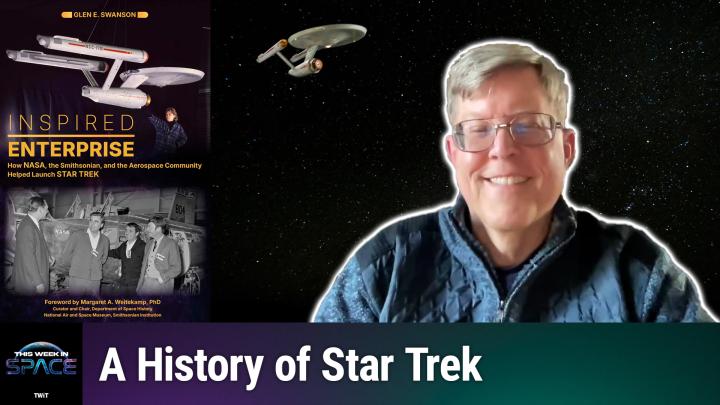
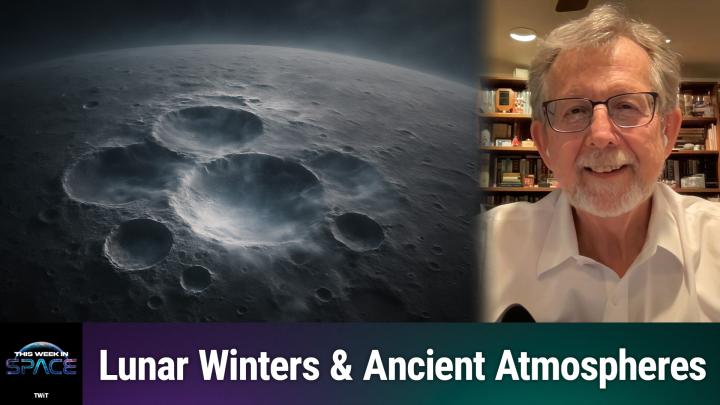
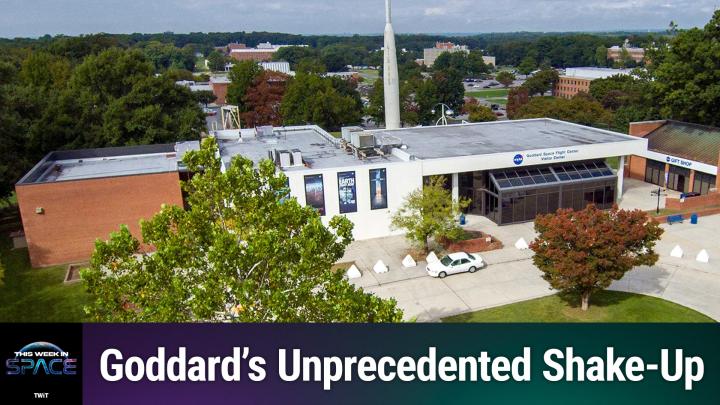

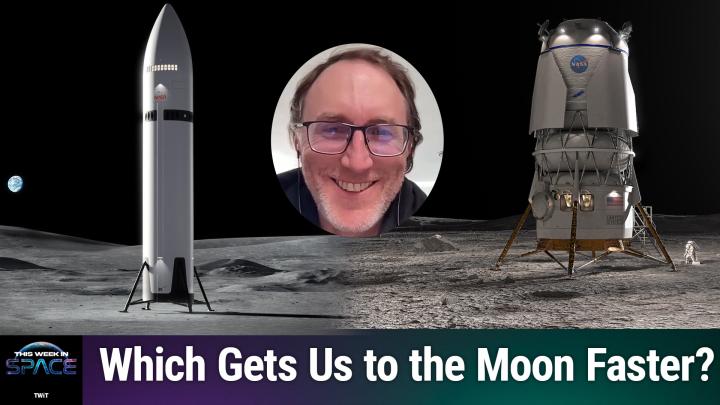

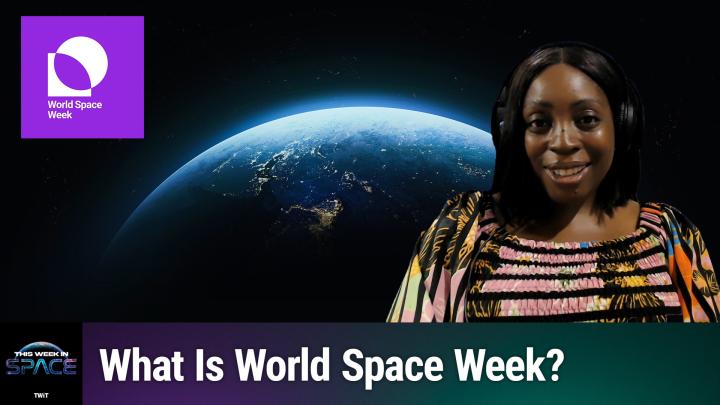
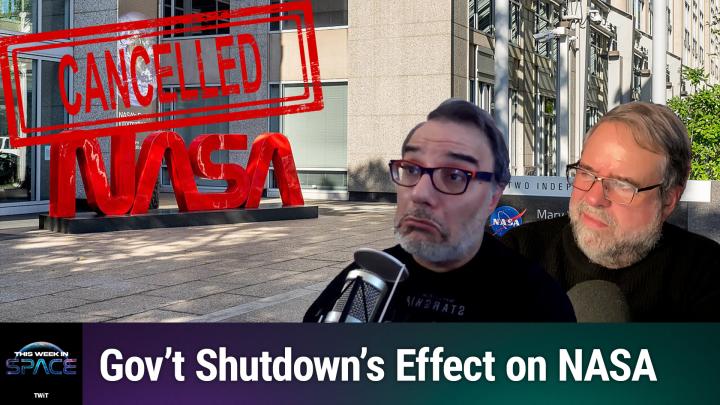
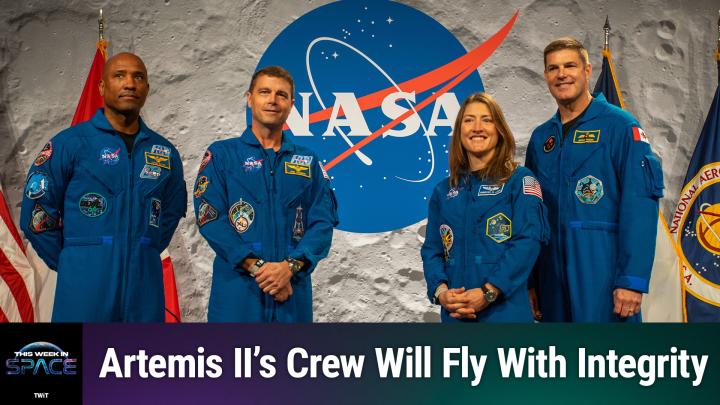
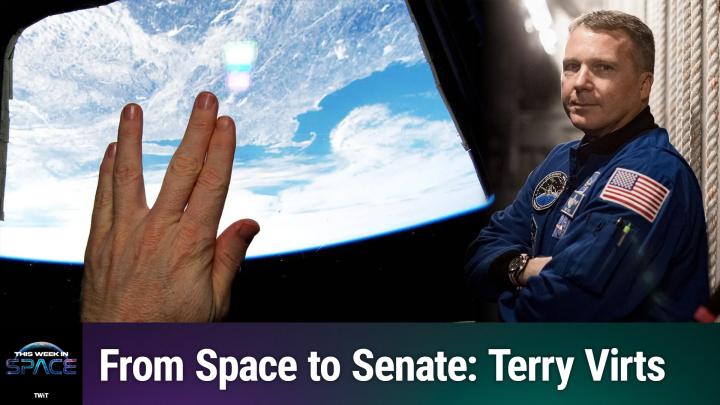
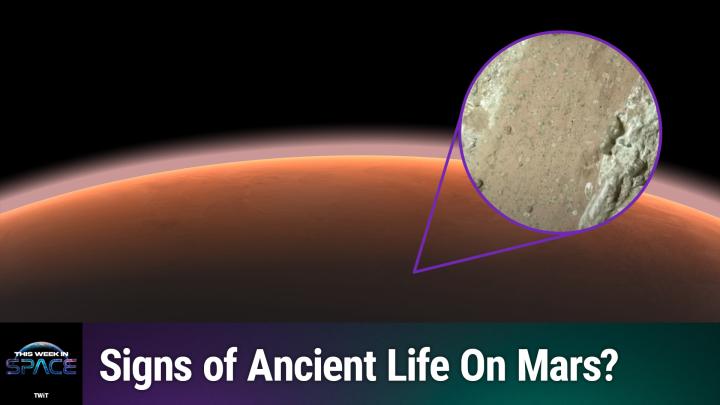
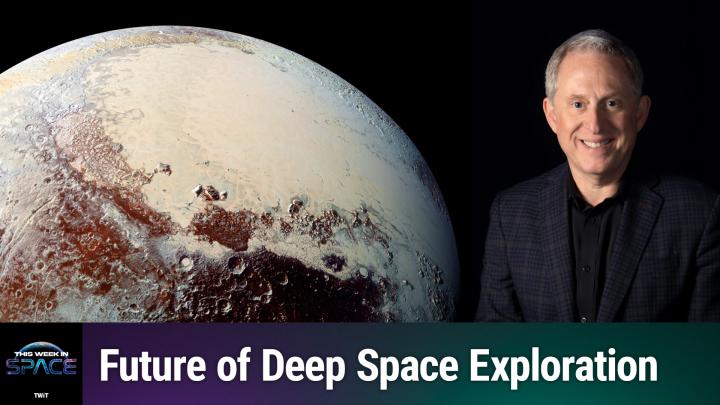

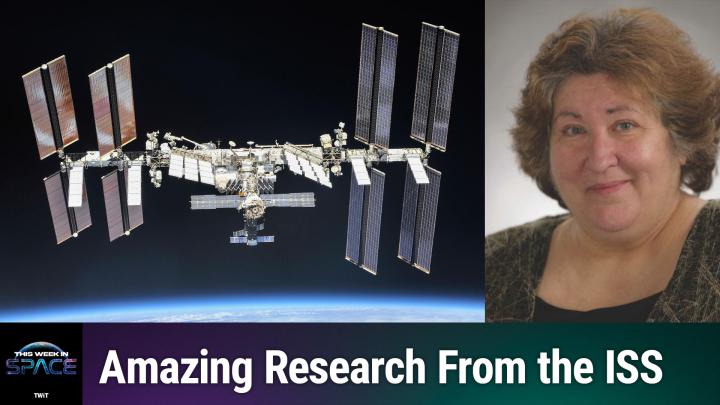
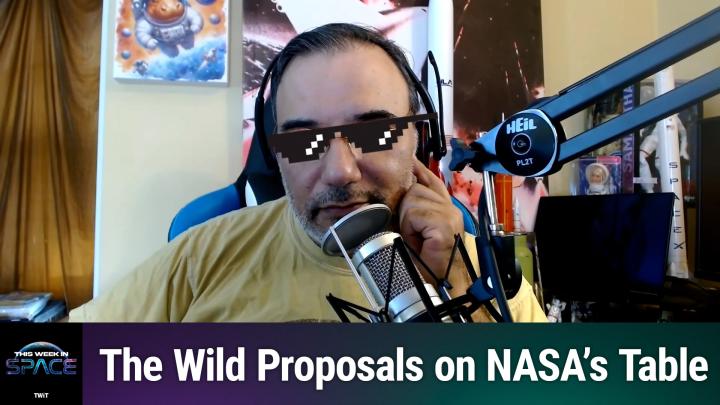
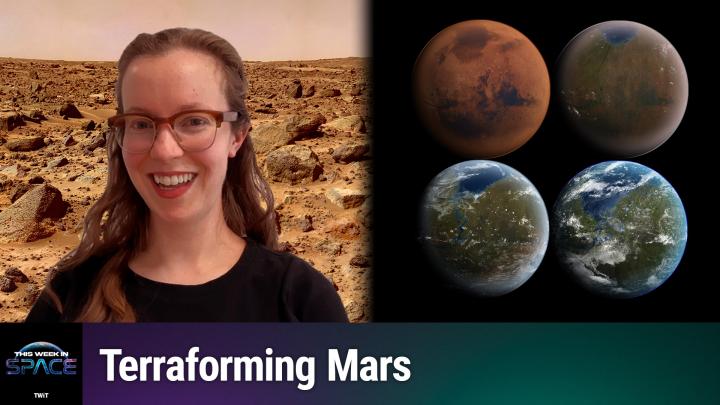
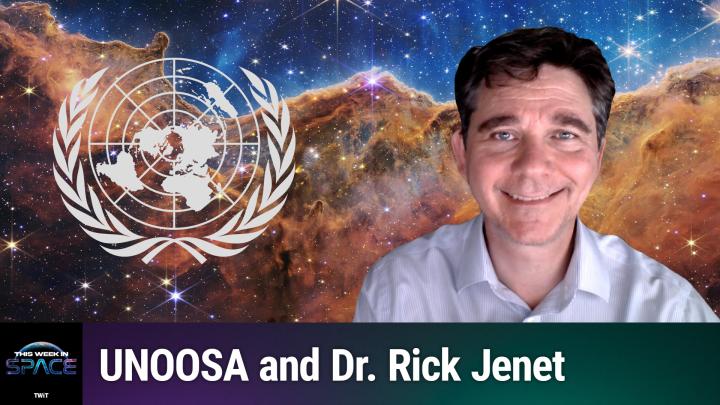
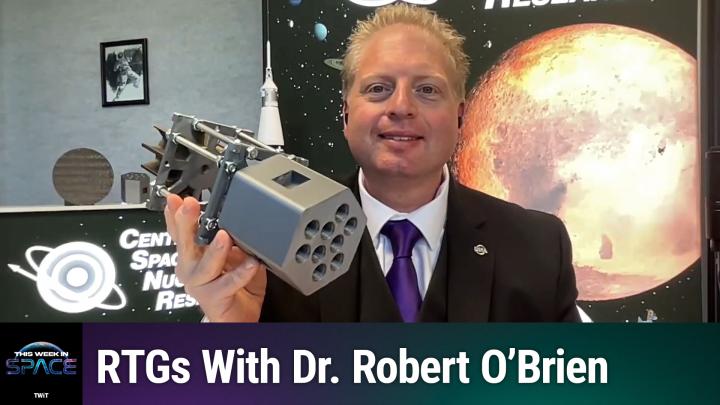
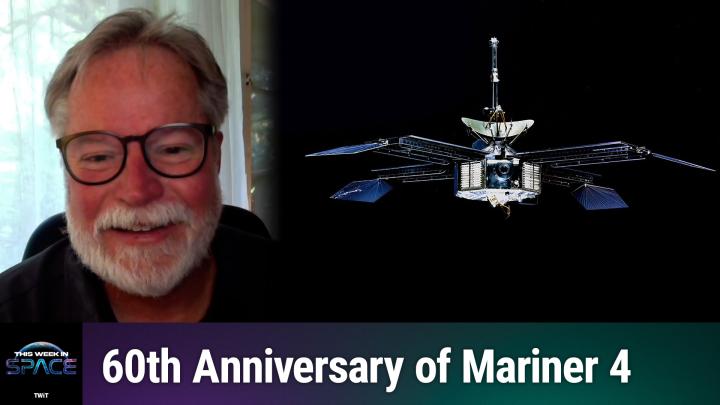
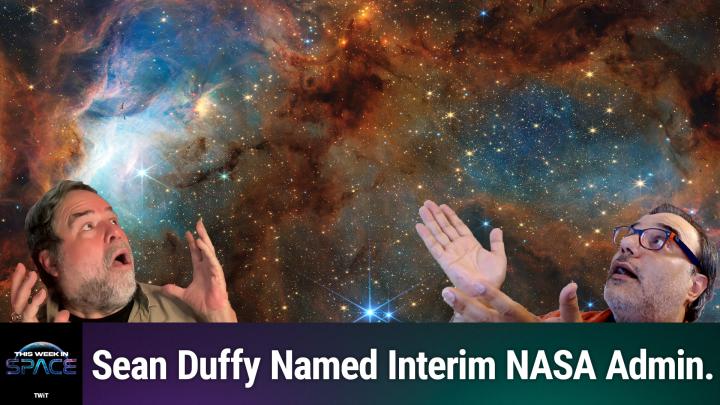



I loved this episode, although i do not agree that "patients" and "patience" are spelled the same. 😁 Also, truth be told, Life was found on Mars in 1976. Perchlorates do explain the absence of organics after the samples were heated. However, despite 50 years of trying, science has NEVER been able to show that perchlorates could mimic something that eats, breathes and sleeps. Nice try, but the late Gilbert Levin was wrongly cheated out of his Nobel Prize for finding it. Best Regards
A crime against science and civilization if the budget takes a cut? I'd say it is a crime against future generations when you spend them into poverty. How much science will get done then?
Another thing that Elon has said in acknowledgement of "Elon Time": We do the impossible, late.
Awesome coverage! thank you for bringing perspective to reporting vs what "main stream media" reports.